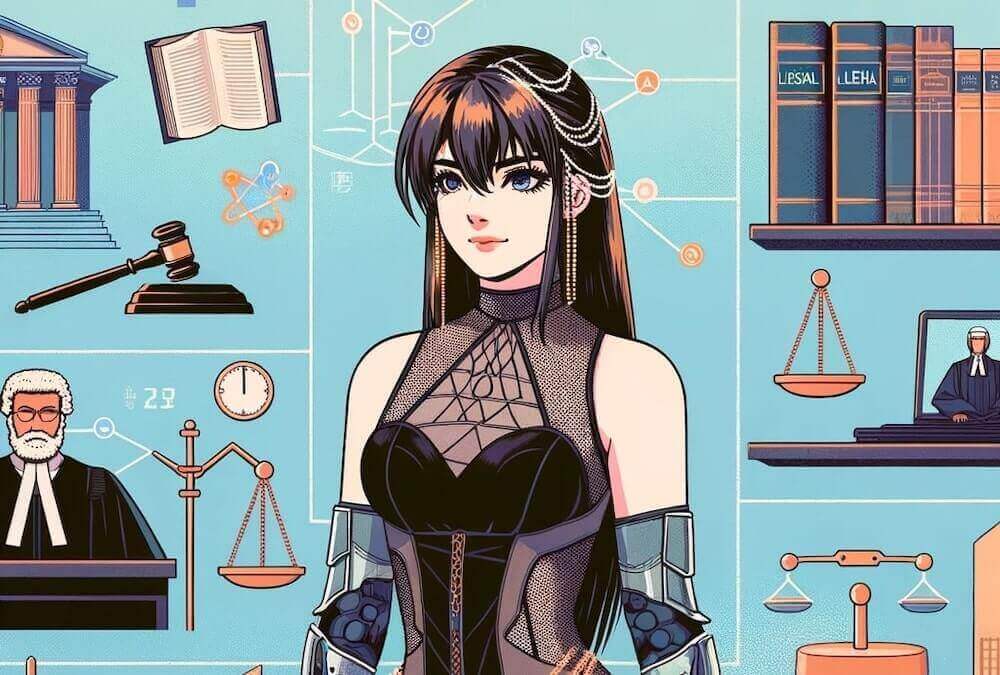Margaret McGhee, aka OMGCosplay, is a big name in the cosplay community. Her work is known for its creative costumes that perfectly capture the essence of the characters she portrays. Plus, she has inspired many in the cosplay scene. OMGCosplay joined other models in a lawsuit against Cloudflare, accusing the global behemoth CDN provider of indirectly supporting piracy. This legal move brought attention to the challenges content creators face in protecting their intellectual property in the digital age.
This post delves into her fight against online piracy, highlighting her legal battle with Cloudflare and its implications for digital content creators.
OMGCosplay: Rising Star and Defender of Digital Rights
Margaret McGhee, better known as OMGCosplay, is a big name in the cosplay world. She’s known for her creative and detailed cosplay costumes that bring characters to life. This creativity has won her a lot of fans, especially male fans.
OMGCosplay uses sites like OnlyFans to share her special content securely. But when Thothub, a site known for piracy, started sharing her stuff without permission, it was a big problem. This breach didn’t just break her rights; it also showed how vulnerable online creators can be. So, OMGCosplay and others decided to take legal steps to defend their work and rights on the internet.
Read more on Creators vs OnlyFans: Battle against Thothub
OMGCosplay’s Legal Stand Against Cloudflare and Piracy
According to a 2020’s report from Winfuture OMGCosplay, along with other cosplay models like Ryuu Lavitz, joined a lawsuit against Cloudflare, accusing the company of aiding copyright infringement. Initially, the focus was on the website Thothub (a piracy site) for posting exclusive photos without permission. They weren’t happy about this, as they usually share their work on OnlyFans, a safer and more profitable platform.
After Thothub went offline (for a while), the lawsuit shifted towards Cloudflare. The cosplay models claimed that Cloudflare, as a CDN provider, was aware of the infringements on Thothub but did not take action. They argued Cloudflare could have limited these infringements by terminating service or not delivering URLs containing infringing content, but instead, Cloudflare allegedly supported sites like Thothub. They literally said Cloudflare knew about the piracy but did nothing. Cloudflare disagreed, claiming it just stores temporary copies and doesn’t control content.
The Unexpected Conclusion of the Cloudflare Lawsuit
The lawsuit that OnlyFans and cosplay models, including Margaret McGhee (OMGCosplay), Ryuu Lavitz, and Niece Waidhofer, filed against Cloudflare got dropped. The court had already dismissed the direct copyright claims, but they could have continued with other claims. In the end, though, the models pulled back all their claims, and the case closed.
Why they dropped it is a bit of a mystery. Some think it might be due to a similar case’s outcome. It is quite likely that this could be due to a ruling in another case where Cloudflare wasn’t held responsible for its users’ copyright violations. Some other people think that a deal was made outside of court.
Challenges and the Future of Online Copyright Protection
OMGCosplay’s lawsuit against Cloudflare really shook her up and the whole cosplay world. It showed the tough copyright issues that people who create content online, like cosplayers, often face. The case made it clear we need to know more about these issues and protect our work better.
Looking ahead, cosplayers (or any OnlyFans models) might have a harder time keeping their work safe online, as more of these sites like Thothub come online. OMGCosplay and others need to deal with this by fighting for stronger laws and adapting to new changes online. After the lawsuit, she might take extra steps to protect her creations and help spread the word in the cosplay community about these important issues.
Conclusions.
OMGCosplay’s role in the lawsuit was really important. It showed the struggles that online creators face in protecting their work. The case brought attention to how hard it is to keep a balance between creating content and protecting it.
Looking forward, it’s clear that content creators need to stay aware and fight for their rights. This lawsuit has taught us a lot about these challenges.

